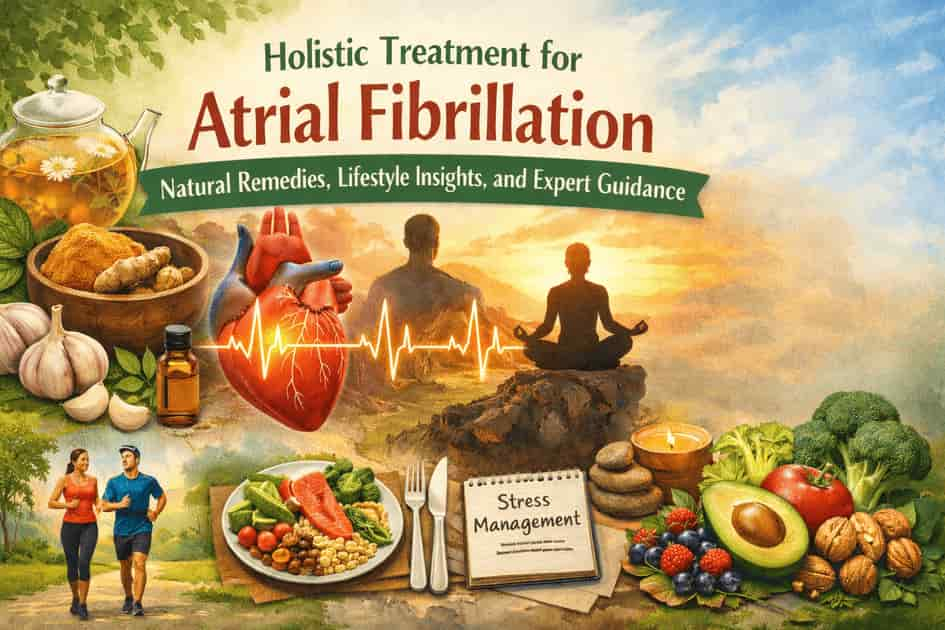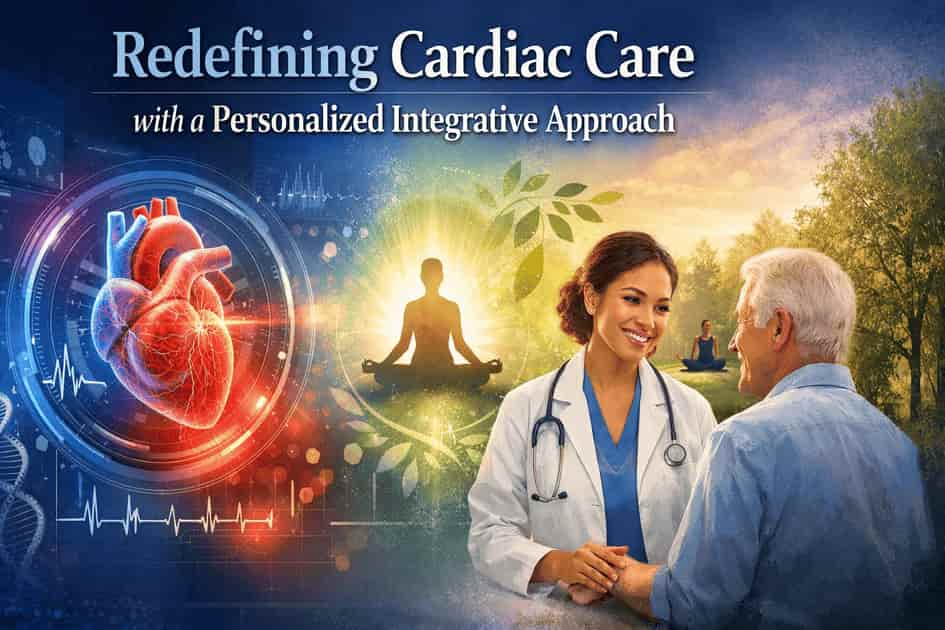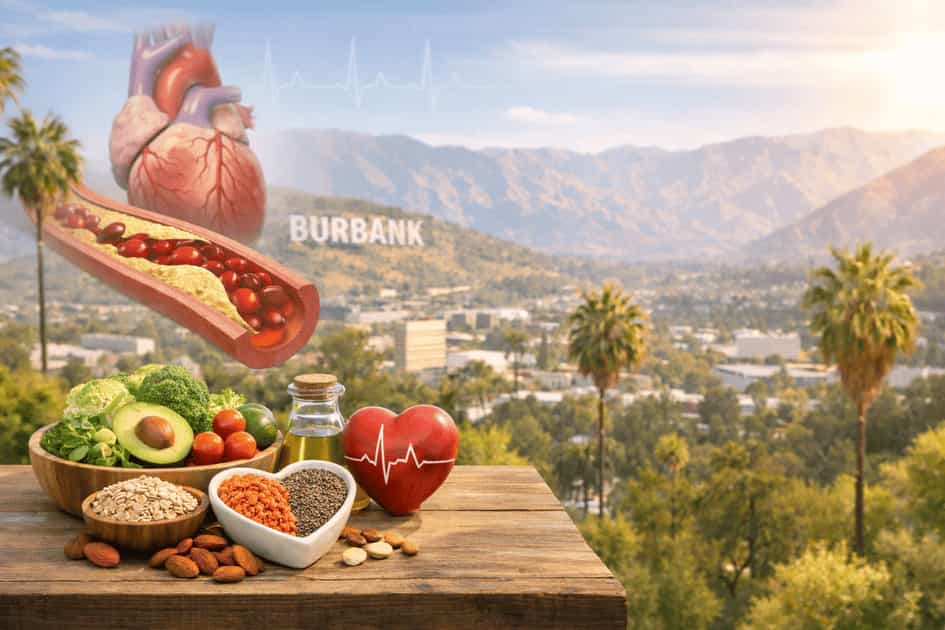Hypertension 101
High Blood Pressure Treatment and Heart Health
The Holistic Healing Heart Center offers many high blood pressure treatment options for people seeking to manage their high blood pressure without the use of drugs, or to support a drug-centered approach. While pharmaceuticals can help control symptoms of hypertension, they do not always reverse the condition unless the underlying causes are also addressed. This integrative approach allows patients to explore high blood pressure treatment strategies that focus on long-term heart health rather than temporary symptom control. In many cases, lifestyle-based care can play an important role in long-term blood pressure management.
What Is Hypertension?
Hypertension occurs when blood pressure readings consistently stay above normal levels. A normal blood pressure reading is around 120/80 mmHg. When readings repeatedly exceed 130/80 mmHg, it is classified as high blood pressure.
High blood pressure forces the heart to work harder to pump blood, which can damage blood vessels and vital organs over time.
Causes of Hypertension
In general, blood pressure readings of 130/80 mmHg or higher are considered high, while 180/120 mmHg is classified as a medical emergency. Although blood pressure testing is easy to perform, a single normal reading does not always mean a patient is in the clear. Therefore, ongoing patient monitoring is essential for guiding timely high blood pressure treatment and detecting hidden or fluctuating elevations.
There are two main types of hypertension: primary and secondary. Primary hypertension develops gradually over time and has no single identifiable cause. In contrast, secondary hypertension appears suddenly and is often more severe. It may result from underlying conditions such as kidney disease, thyroid disorders, adrenal gland tumors, or obstructive sleep apnea. Additionally, certain medications—including birth control pills, decongestants, and over-the-counter pain medications —can trigger elevated blood pressure.
Because blood pressure naturally rises and falls throughout the day, diagnosis can be challenging. Blood pressure is often lower at home, especially when patients relax before testing. However, this may mask true risk. As a result, a patient has hypertension even if occasional readings appear normal. Continuous assessment and structured patient monitoring help identify peak blood pressure levels during daily stress and activity.
Lorem ipsum dolor sit amet, consectetur adipiscing elit. Ut elit tellus, luctus nec ullamcorper mattis, pulvinar dapibus leo.
Who Is Most At-Risk for Hypertension?
Certain groups are more likely to develop high blood pressure due to genetic, lifestyle, and environmental factors.
- Families with a history of hypertension: High blood pressure often runs in families, increasing long-term cardiovascular risk.
- Age: Blood pressure risk increases with age. Men are more affected before age 65, while women’s risk rises later in life
- Race: People of African heritage are more likely to develop high blood pressure earlier and experience complications such as stroke or kidney disease.
- Physical inactivity: A sedentary lifestyle raises resting heart rate and forces the heart to work harder, increasing pressure on the arteries.
- Weight: Excess body weight increases blood volume and strain on artery walls, raising blood pressure levels.
- Tobacco: Smoking causes temporary blood pressure spikes and damages blood vessel lining. Secondhand smoke also increases risk.
- Overconsumption of salt: too much sodium in an individual’s diet can lead to fluid retention, increasing blood pressure.
- Underconsumption of potassium: one of the purposes of potassium in the body is balancing sodium levels.
- Overconsumption of alcohol: heavy drinking over time can damage a drinker’s heart. For those who partake, drinking in moderation is advised (24 ounces of beer, 10 ounces of wine, or 3 ounces of 80-proof liquor for men, and half as much for women).
- Stress: Stress can cause temporary blood pressure spikes, and unhealthy coping habits may worsen long-term risk.
High Blood Pressure: The Silent Killer
High blood pressure is often called a silent killer because it typically has no noticeable symptoms and can go undetected without testing. In the United States, nearly half of adults have elevated blood pressure, and many are unaware their condition is uncontrolled. According to the CDC, high blood pressure contributes to hundreds of thousands of deaths each year.
If left unmanaged, high blood pressure significantly increases the risk of heart disease, stroke, kidney damage, and other serious complications. This is why early detection and ongoing monitoring—especially through remote blood pressure monitoring—are essential for long-term cardiovascular health.
Pharmacologic Management of High Blood Pressure
Untreated and unmanaged high blood pressure can lead to serious health complications. However, several medication options are available to help patients with hypertension lower blood pressure and reduce long-term risks. Different classes of medications work in specific ways to support cardiovascular health.
Common medications used in high blood pressure treatment include:
- Diuretics: which help the body eliminate excess sodium and water
- Beta-blockers: which reduce heart rate and decrease cardiac workload
- ACE inhibitors: which help relax blood vessels by limiting angiotensin production
- Angiotensin II receptor blockers:which prevent blood vessel constriction
- Calcium channel blockers: which allow blood vessels to widen by reducing calcium entry
- Alpha-blockers: which lower vascular resistance
- Alpha-2 receptor agonists: lower blood pressure by reducing nervous system activity
- Combined alpha and beta-blockers: lower blood pressure by reducing heart rate and decreasing vascular resistance; often used in complex cases or hypertensive crisis
- Central agonists: decrease signals that cause blood vessels to tighten
- Peripheral adrenergic inhibitors: block neurotransmitters that raise blood pressure
- Vasodilators: relax blood vessel walls and improve circulation
All of these medications may have side effects, including dizziness, fatigue, or sleep disturbances. For this reason, many patients benefit from a balanced approach that combines medication, lifestyle changes, and ongoing patient monitoring for long-term blood pressure control.

Non-Pharmacologic High Blood Pressure Treatment Options
The Holistic Healing Heart Center offers many treatment options for people seeking to manage their high blood pressure without the use of drugs, or to support a drug-centered approach. While pharmaceuticals can help control symptoms of hypertension, they do not always reverse the condition unless the underlying causes are also addressed. Although this is not always possible, lifestyle adjustments can often be made to support long-term blood pressure control.
In addition to reducing salt and alcohol intake, quitting tobacco use, increasing potassium intake, and exercising more frequently, certain herbs and spices may provide added cardiovascular support for individuals working to lower their blood pressure.
- Garlic: supports blood vessel relaxation and cardiovascular health
- Cardamom: shown to contribute to reductions in blood pressure
- Curcumin: turmeric compound with anti-inflammatory and heart-supportive properties
- Ginger: improves circulation and blood flow.
- Cinnamon: supports heart health and metabolic balance
- Black pepper: promotes cardiovascular function
- Cayenne pepper: enhances circulation and blood flow
When used alongside healthy lifestyle habits and professional guidance, these non-pharmacologic options can play an important role in supporting balanced blood pressure and overall heart health. When guided by medical professionals, non-drug therapies can complement clinical care and support a personalized high blood pressure treatment plan. Book your appointment to discuss hypertension prevention or treatment today.
Meet Dr. Cynthia Thaik, MD - Functional & Integrative Cardiologist
Dr. Cynthia Thaik is a board-certified cardiologist who integrates functional medicine into her concierge practice with a specialized focus on cardiovascular and neurovascular optimization.
She devotes one week per month exclusively to functional medicine consultations via telehealth, allowing for deep, unrushed care. During this time, Dr. Thaik works closely with patients seeking transformation, root-cause healing, and individualized strategies grounded in integrative science.
Her approach combines:
- Precision diagnostics
- Advanced cardiovascular expertise
- Compassionate, heart-centered listening
- Extensive patient education
“Cardiovascular consultations and diagnostic services are covered by insurance. Functional medicine services are offered exclusively as concierge, self-pay services”
Schedule Your Telehealth Consultation with Dr. Cynthia
If you’re living with atrial fibrillation and want to explore natural treatment options, Dr. Cynthia is here to help. She provides telehealth consultations to guide you through personalized care plans, addressing lifestyle changes, supplement use, and stress management techniques tailored to your unique health needs.
Dr. Cynthia Thaik will perform a thorough cardiovascular assessment, looking at cardiac function, ruling out structural damage, checking paroxysmal atrial fibrillation symptoms, assessing the adverse effects of hypertension and dietary toxicity (alcohol, caffeine, excessive inflammatory foods), checking for vascular inflammation and endothelial dysfunction, and exploring the impact of stress on arterial tone and the autonomic nervous system regulation of the cardiovascular system.
The patient will have an option to receive individual coaching from a mindfulness instructor. Together, this integrative team approach to Afib will provide the patient with the best opportunity to address the root causes underlying the atrial fibrillation and hopefully restore normal sinus rhythm. As with all health conditions, our goal is to help Afib patients transition from symptoms and disease care to optimal health and wellness – true preventive cardiology.
If you have been diagnosed with Atrial Fibrillation and are looking for natural treatments, Schedule a virtual visit or call for Telehealth Appointment at (818) 842 1410
Frequently Asked Questions
Regular palpitations can be a sign of atrial fibrillation. While this condition can continue for years without harm, a consistent increase in heart rate can cause heart enlargement. This is a hazard which can result in heart failure. Atrial fibrillation also comes with an increased risk of stroke from blood clots that can form as a result.
Without a solid understanding of the causes, it can be hard to definitively put a stop to heart palpitations. However, the treatments mentioned above: reducing stress and intake of stimulants, alcohol, and nicotine, exercising more, and eating a balanced diet, are all good steps forward. If your cardiologist determines that you have a more serious heart condition that may be life-threatening, it will require treatment. There are heart medications which can prevent more serious heart rhythm disorders. However, because of their significant side effects, they are not prescribed lightly. Consequences of misuse can lead to heart attacks, or even sudden death.
Some people experience heart palpitations after eating. While those palpitations may be attributable to an underlying medical condition, it is also possible that the food or beverage that was just consumed is responsible. Sugar can have this effect, particularly on hypoglycemic people. Alcohol is another common influence, particularly among those who have paroxysmal atrial fibrillation (PAF). Foods rich in tyramine or theobromine, such as cheese, red wine, bananas, and especially chocolate (which has both), can increase heart rate and may cause atrial fibrillation.
Actually, no. A more likely cause of heart palpitations is in fact low blood pressure. It is true that medication for high blood pressure can have a side effect of causing palpitations, which may be what is happening when someone with high blood pressure experiences palpitations.



